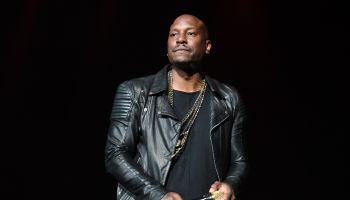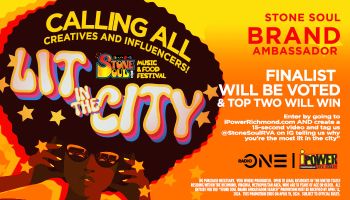After filming and posting his apparent psychological breakdown to social media, Tyrese Gibson has seemingly joined a growing fraternity of Black men suffering from mental health issues. In Tyrese’s case, the singer-actor sent tears streaming down his face while sounding off in frustration over professional and personal conflicts in his life.
Aside from offering some disparaging words for actor Dwayne “The Rock Johnson,” the ability to fund a legal fight for custody of his daughter drove him to suffer from the emotional meltdown. So much so, he was hospitalized last week with chest pains after a court hearing with his ex-wife Norma Gibson, according to TMZ.
READ MORE: How Black Millennials Are Shattering Mental Health Stereotypes
Tyrese has been diagnosed as being bi-polar, a condition defined as being a mental health disorder, his ex-wife told People in September.
While the world may have witnessed a mental breakdown, statistics show that one potential consequence is more than likely: Tyrese will not seek help for the apparent mental anguish.
From 2014 to 2015, fewer than 9 percent of Black Americans voluntarily sought out psychological help, a study conducted by National Institute of Mental Health, from 2015 to 2015, the most recent statistics available. By contrast, nearly 17 percent of White people used mental health services in that same time span.
The numbers for Black people using prescription medication for mental health reasons dropped even lower.
Those findings came even though “African Americans are no different when its comes to prevalence of mental health conditions when compared to the rest of the population,” according to the National Alliance On Mental Illness (NAMI).
In fact, Black people have been found to be more resilient in the face of stress – a major contributing factor for mental health issues – according to new research.
Still, “African Americans are 20% more likely to experience serious mental health problems than the general population,” NAMI wrote on its website. The most prevalent among them are major depression, attention deficit hyperactivity disorder, suicide and posttraumatic stress disorder.
One group of Black people challenging the race’s mental health status quo is millennials, showing that there may be help yet for Tyrese, who at the age of 36 is just two years removed from the top of the demographic’s age range.
“They see mental health as a necessity for self-development,” psychotherapist and social worker Asha Tarry told NewsOne last month. “They are not accepting their parents’ ways of dealing with stress, and millennials certainly don’t view seeking out a therapist as a sign of weakness.”
READ ALSO:
White Student Accused Of Systematically Poisoning Black Roommate
Racist Attack Backfires In St. Paul Mayoral Race
After Breakdown, Chances Are Tyrese Won’t Get Any Mental Help, Statistics Show was originally published on newsone.com












